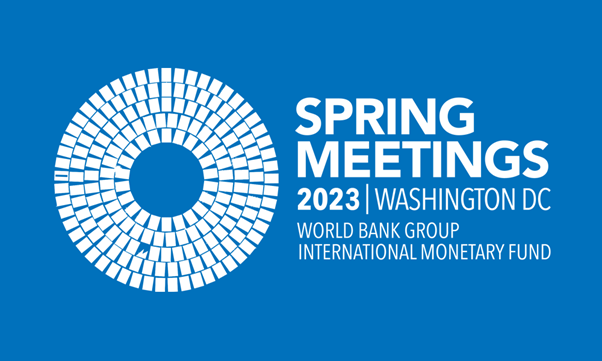The 2023 Spring Meetings of the World Bank Group (WBG) and the International Monetary Fund (IMF)
Washington DC, USA, 10-16 April 2023
The 2023 Spring Meetings of the World Bank Group (WBG) and the International Monetary Fund (IMF) will take place, from April 10 through April 16, in the World Bank Group and IMF headquarters, in Washington DC.
The Spring Meetings of the Boards of Governors of the World Bank Group (WBG) and the International Monetary Fund (IMF) bring together central bankers, ministers of finance and development, private sector executives, representatives from civil society organizations and academics to discuss issues of global concern, including the world economic outlook, poverty eradication, economic development, and aid effectiveness. Also featured are seminars, regional briefings, press conferences, and many other events focused on the global economy, international development, and the world's financial system.
The events will occur as Sub-Saharan Africa is slowly recovering from the COVID-19 pandemic, but, also, facing new economic threats, including new virus variants, global inflation, supply disruptions and climate shocks.
The Civil Society Policy Forum (CSPF), during the meetings, is one of the most critical opportunities to influence the institutions, as it allows civil society organizations (CSOs) and communities affected by development projects to engage directly with bank staff and officials.
As African CSOs have put it clearly, at several occasions, they have great ambitions, to meaningfully contribute to achieving sustainable development and shared prosperity within their respective communities. They wish to be part of that ultimate global goal of “Leave No One Behind”. They wish to empower women and girls, support youth entrepreneurship and leadership, promote income-generating activities in rural communities, protect the planet and mitigate climate change impacts, promote human rights and rule of law, protect minorities, strengthen African values of solidarity and accountability, and many others. Most of African CSOs programmes remain unimplemented due to lack of resources, appropriate capacity and necessary involvement in decision-making processes.
2023 IMF x World Bank Group Spring Meetings


